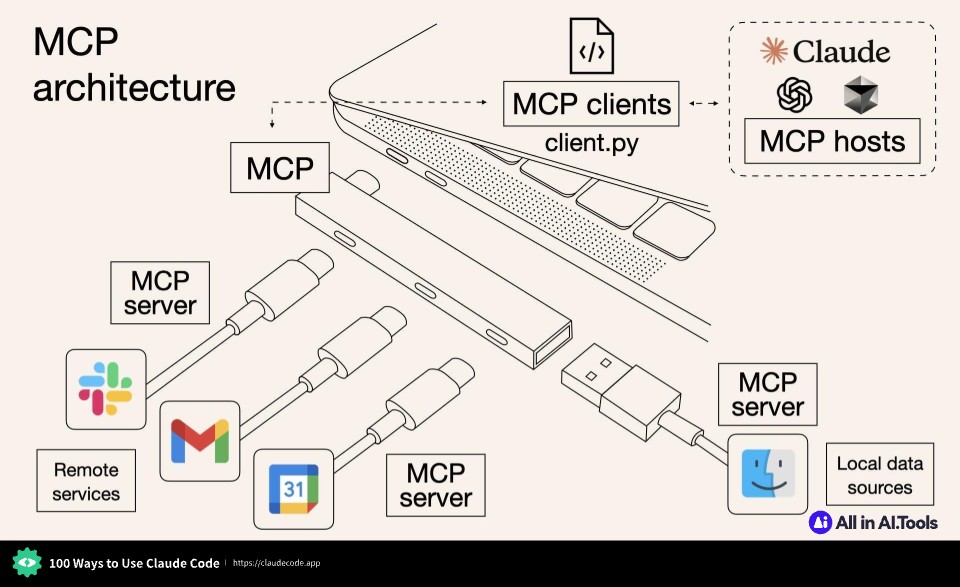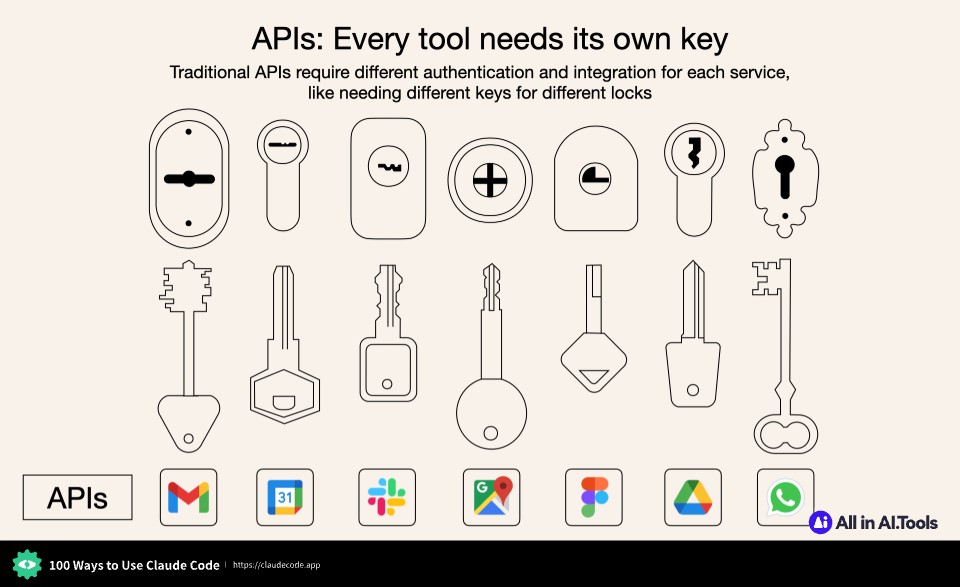Discover and integrate MCP servers to extend Claude's capabilities
CCXT MCP Server bridges the gap between AI models and cryptocurrency trading by providing a standardized interface through the Model Context Protocol. Created to empower automated trading strategies, this tool allows AI assistants like Claude and GPT to directly interact with over 100 cryptocurrency exchanges without requiring users to write comple
MCP for the Alpaca trading API to manage stock and crypto portfolios, place trades, and access market data
Expose llms-txt to IDEs for development
An MCP server for executing token swaps on the Solana blockchain using Jupiter's new Ultra API.
An MCP server that delivers cryptocurrency sentiment analysis to AI agents.
mcp for controlling your x account through llm agents(claude desktop/cursor) expalnation vid: https://youtu.be/pAEEIVdsky8
An MCP server to read MCP logs to debug directly inside the client
An MCP server that autonomously evaluates web applications.
OpenWorkspace-o1 S3 Model Context Protocol Server.
A Model Context Protocol server that provides access to MongoDB databases. This server enables LLMs to inspect collection schemas and execute MongoDB operations.
MCP Server for the GitHub API, enabling file operations, repository management, search functionality, and more.
Image generation server for Claude Desktop using EverArt's API.
Create crafted UI components inspired by the best 21st.dev design engineers.
Use 3,000+ pre-built cloud tools to extract data from websites, e-commerce, social media, search engines, maps, and more
A Model Context Protocol server implementation for Axiom that enables AI agents to query your data using Axiom Processing Language (APL).Query and analyze your Axiom logs, traces, and all other event data in natural language,
The Model Context Protocol (MCP) is an open protocol that enables seamless integration between LLM applications and external data sources and tools. Whether you're building an AI-powered IDE, enhancing a chat interface, or creating custom AI workflows, MCP provides a standardized way to connect LLMs with the context they need.</br>This server provides cloud browser automation capabilities using Browserbase, Puppeteer, and Stagehand (Coming Soon). This server enables LLMs to interact with web pages, take screenshots, and execute JavaScript in a cloud browser environment.Automate browser interactions in the cloud (e.g. web navigation, data extraction, form filling, and more)
Deploy, configure & interrogate your resources on the Cloudflare developer platform (e.g. Workers/KV/R2/D1)
Contract and template management for drafting, reviewing, and sending binding contracts.
Immutable ledger database with live synchronization
Search dashboards, investigate incidents and query datasources in your Grafana instance
Tools for seamless integration of different systems and services.
Cloud infrastructure and deployment management tools.
AI-powered tools for creative design workflows across 3D and 2D mediums.
AI-powered tools for product development, design review, and performance monitoring.
Tools for monitoring, analytics, and operational efficiency.


Explore Claude Cowork, Anthropic's groundbreaking AI agent built on Claude Code foundations. Discover how it enables file access, document creation, and task automation for everyone—not just developers. Learn how it integrates with MCP servers and extends Claude Code capabilities.
Explore the major [Claude code](https://claudecode.app) 2.1.1 update featuring 109 CLI improvements, automatic hot reload for skills, sub-agent execution, enhanced security, performance optimizations, and smarter prompt behavior. Learn about all the new features and improvements.
Master the art of prompting Claude with Anthropic official guide. Learn 10 proven strategies to 10x your Claude Opus and Sonnet 4.5 performance. Discover how better prompts lead to better results with practical examples and real-world applications.
Deep dive into sophisticated SSH workflows for Claude Code power users. Learn zero-friction authentication, session management, and advanced techniques that transform your vibe coding experience.
MCP (Model Context Protocol) is an open protocol that standardizes how applications provide context to LLMs. Think of MCP like a USB-C port for AI applications, providing a standardized way to connect AI models to different data sources and tools.
MCP Servers are lightweight programs that expose specific capabilities through the standardized Model Context Protocol. They act as bridges between LLMs like Claude and various data sources or services, allowing secure access to files, databases, APIs, and other resources.
MCP Servers follow a client-server architecture where a host application (like Claude Desktop) connects to multiple servers. Each server provides specific functionality through standardized endpoints and protocols, enabling Claude to access data and perform actions through the standardized protocol.
Yes, MCP Servers are designed with security in mind. They run locally with explicit configuration and permissions, require user approval for actions, and include built-in security features to prevent unauthorized access and ensure data privacy.